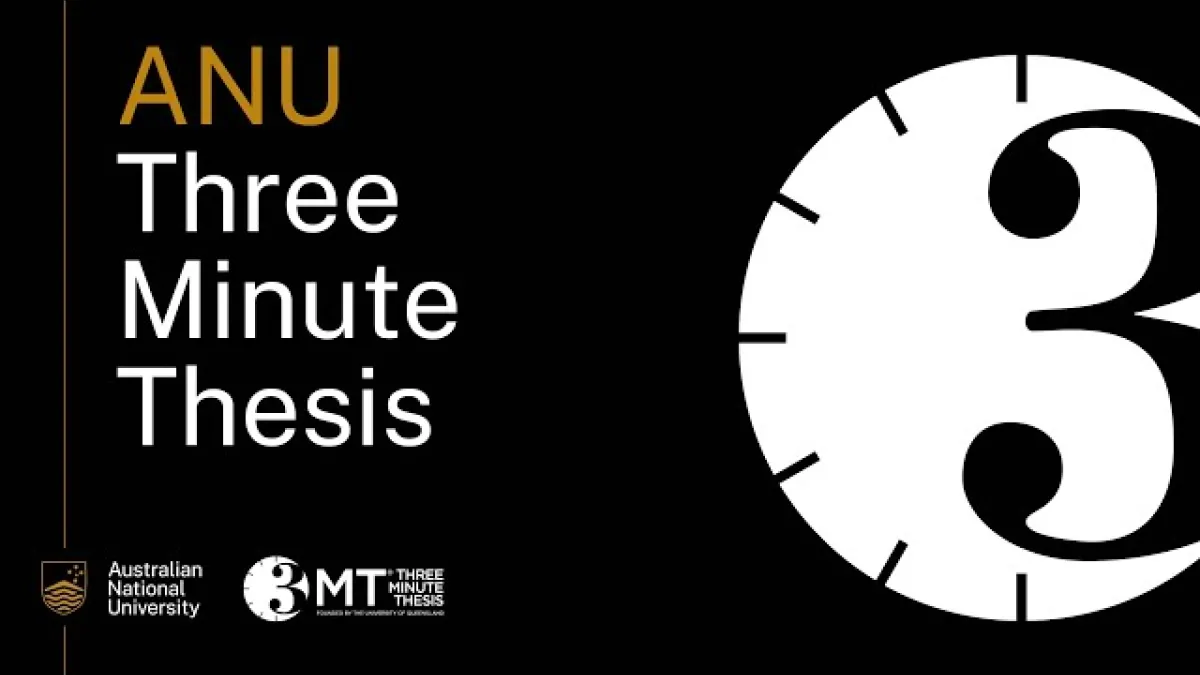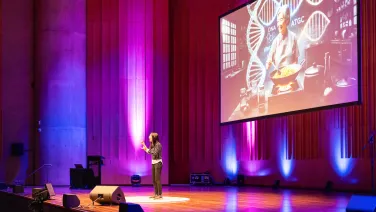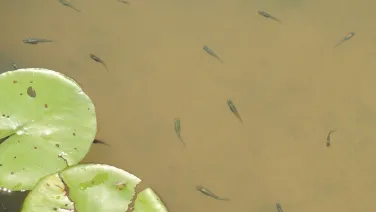
Love lessons from mosquitofish: tales from the ANU 3MT competition
By Hannah Dixon
Forget romantic comedies or childhood crushes – when it comes to learning about love, ANU PhD scholar Chenke Zang says we should be looking to fish for answers.
Speaking at the ANU final of the Three Minute Thesis (3MT) competition, Zeng unpacked her studies in mosquitofish and reproduction in just 180 seconds.
She explained that these tiny fish tell us that evolution is more than survival of the fittest. It is also about being about to pass on your genes. In other words, love – or at the very least, lust.
“I promise I’m not just someone who watches fish mate all day for fun,” Chenke joked.
“Although it is tempting to think we are completely unique among animals, we share more similarities than we thought, especially in reproduction.”
What are some of those similarities, you ask? Take courtship as an example.
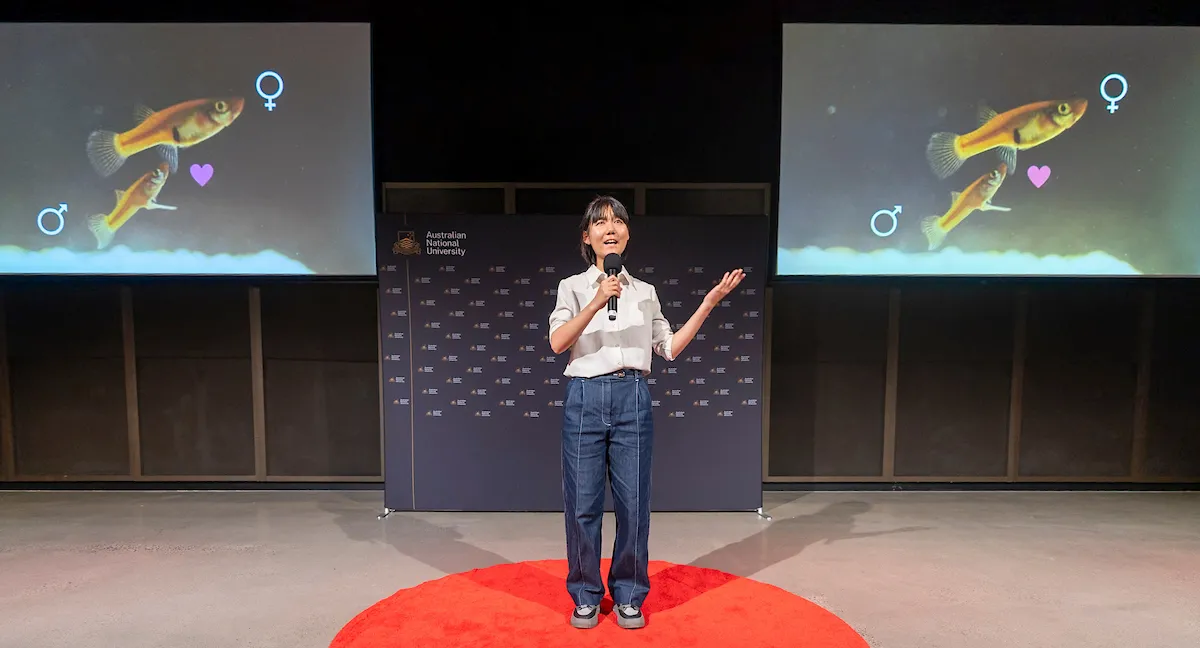
“I have seen male mosquito fish constantly chasing females and females grouped together to avoid that,” Chenke said.
“This reminds me of how at a party, people stick with their friends just to avoid being pursued too much. Different species, same social strategy.
“Understanding how fish adjust their reproductive strategy we’re learning something important, not just about fish futures, but about our own love story too.”
Zang’s clear explanation of what fish can teach us about love won her first place in the annual 3MT competition – beating out the 12 other finalists from across the University. Zheng will now progress to the Asia-Pacific Semi-Final Showcase and compete against scholars from across Australia, New Zealand, Japan, Hong Kong, Malaysia and Singapore.
From shower thoughts to galaxy botox
Doing a PhD takes years, requires deep reserves of interest and passion, and is so all-consuming it can almost become your entire identity. Boiling all of that down into a short, accessible presentation for a general audience isn’t easy.
ANU learning advisor and event coordinator Simon Clews told the audience that 3MT was the brainchild of University of Queensland professor, Alan Lawson.
Amid the drought-driven need to take shorter showers, many Queenslanders tacked three-minute egg timers to their bathroom walls. The practice inspired Professor Lawson to create 3MT.
Now, as an international competition, 3MT is a “passport”, according to Clews – the networks made while participating can be valuable in further research and knowledge sharing. The judges are even past participants.
The presentations at the ANU final covered a variety of topics including international law, technology, biology and political studies.
Runner up, Qianhui Chen, shared her presentation on one of the biggest mysteries in astronomy: how the spiral arms of galaxies came to be.
“Our solar system sits on a spiral arm of the Milky Way. Over two thirds of nearby galaxies have spiral arms,” Chen said.
“They act like the delivery rooms of the universe, giving birth to most stars.”
As part of her PhD, Chen has been tracking how spiral arms have changed in the past five billion years. She developed an algorithm to detect spiral arms and how they grow and change over time. She compared the development of spiral arms to the development of wrinkles on a person’s face.
The shape and size of the spiral arms are influenced by the genetics of their internal expansion and the influence of their environment. And, contrary to past theories, mergers between galaxies do not remove these wrinkles – there is no galaxy-level Botox.
“Galaxies wear their life stories on their face, and I’m here to find out where those wrinkles come from,” Chen concluded.
A story of a mother
The people’s choice prize was taken out by Mamta Sachan Kumar for her presentation – The Story of Nothing.
She began with a told the story of a young girl who was very dismissive of her mother’s work as a housewife, deeming it to be ‘nothing’.
For Kumar, tracing the women’s work that has gone into the continuation and survival of her community was deeply personal. She is a member of a small group of Indian migrants living in Japan.
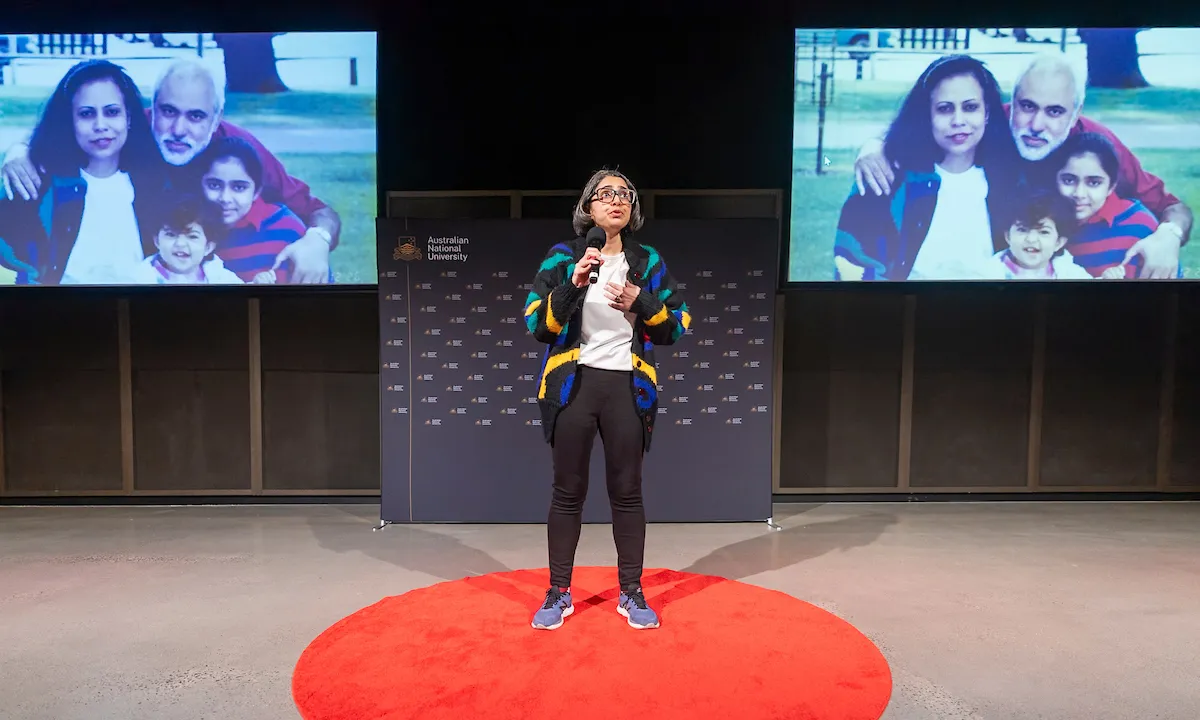
“Every day my research brings to life the story of ‘nothing’. The ‘nothing’ that women do, that preserves their personhood and ensures my survival as a migrant,” Kumar said.
Behind Kumar on stage was an image of a family, the mother dressed in a cardigan remarkably similar to the one she wore herself.
This article was first published in ANU Reporter.

